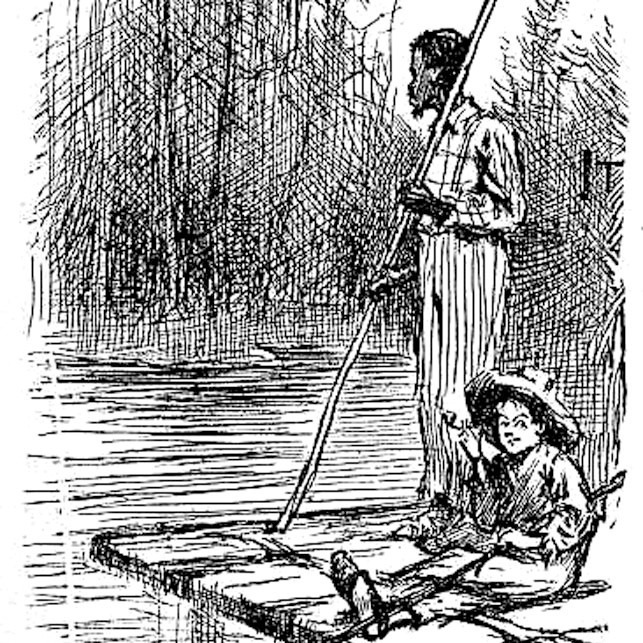A reimagining of "Huckleberry Finn" that switches the perspective to that of Jim

James (Pan Macmillan) by Percival Everett
As Ernest Hemingway famously claimed, “All modern American literature comes from one book by Mark Twain called Huckleberry Finn.” In his latest novel, James, Percival Everett reimagines Twain’s classic (first published in 1884), switching the perspective from the eponymous daring rascal to that of Jim, who becomes a slave on the run when he flees Huck’s guardian.
Initially, Everett follows Twain’s plot: Jim runs away to escape being sold and separated from his family. Huck joins him to get away from an abusive father. They travel down the Mississippi together on a raft enduring various mishaps along the way including several encounters with two fraudsters, the Duke and the King. But when the pair are separated, the novel follows what happens to Jim, who Everett now refers to by his full name, James.
A professor of English literature at the University of Southern California and author of more than 30 books, Everett is gaining welcome prominence in the UK. His satirical novel The Trees, about the historic lynching of Black Americans and modern-day racism, was shortlisted for the 2022 Booker Prize. An earlier novel, Erasure (2001), featuring a Black humanities professor who, pandering to the white-dominated publishing industry, writes a deliberately cliched “ghetto” tale, was adapted into the Oscar-winning film American Fiction (2023).
Although a grim account of the pernicious and brutal treatment of slaves, James is full of wry humour. We discover that James can read and write. He only employs a slave dialect around white people. “White folks expect us to sound a certain way and it can only help if we don’t disappoint them,” he tells his daughter Lizzie and other children during a language lesson on using a slave filter. “The only ones who suffer when they are made to feel inferior is us. Perhaps I should say ‘when they don’t feel superior’.” The children are instructed what to say if they notice a white person’s house is on fire: “Lawdy, missum! Looky dere,” is correct. “Because we must let the whites be the ones who name the trouble.”
In a recent interview, Everett observed that he employs comedy in order to engage the reader’s trust. His lively prose and caustic wit – “All white men looked alike in a way, like bears, like bees, especially when dead” – are compelling and he interweaves horror and comedy to terrific effect. During his journey down the Mississippi, James is repeatedly enslaved and sold by the unscrupulous white people he meets. He is forced to join a blackface minstrel troupe when its manager, Daniel Decatur Emmett, who claims to be opposed to slavery, buys him from another white man. Based on a real person, Emmett and his minstrels profit from the music of Black people, using it to mock them. Everett includes a darkly comic passage when, after their show, James wakes to find a white man stroking his hair in awe: “I just had to touch that wig.”
But James’s journey is also an intellectual one: he responds to violence with art. He has imagined conversations with Voltaire, Rousseau and Locke “about slavery, race and … albinism”. By writing about the injustices he endures, James owns what happens to him, and rejects being objectified. He insists on referring to white people as the “enemy” (Everett’s italics), observing that “oppressor necessarily supposes a victim.”
It’s a personal story, but also a reckoning with enslavement and injustice. Although James sets out to rescue his wife and children by earning enough to buy them, this evolves into a fierce desire for all his fellow slaves to be free. As he says to one: “You can die with me trying to find freedom or you can stay here and be dead anyway.”
Huckleberry Finn and its prequel, The Adventures of Tom Sawyer, have been elevated as classics, staples of children’s literature for generations. In recent years, Mark Twain has come under criticism for his use of racial stereotypes and slurs. However, Everett has made it clear that he did not write James as a corrective to the original. Rather, the two books have been set up in conversation, with Everett employing a clever final twist. James is a layered, compassionate book with a rich supporting cast, full of anger, humour and – ultimately – hope.
This article is from New Humanist’s autumn 2024 issue. Subscribe now.


